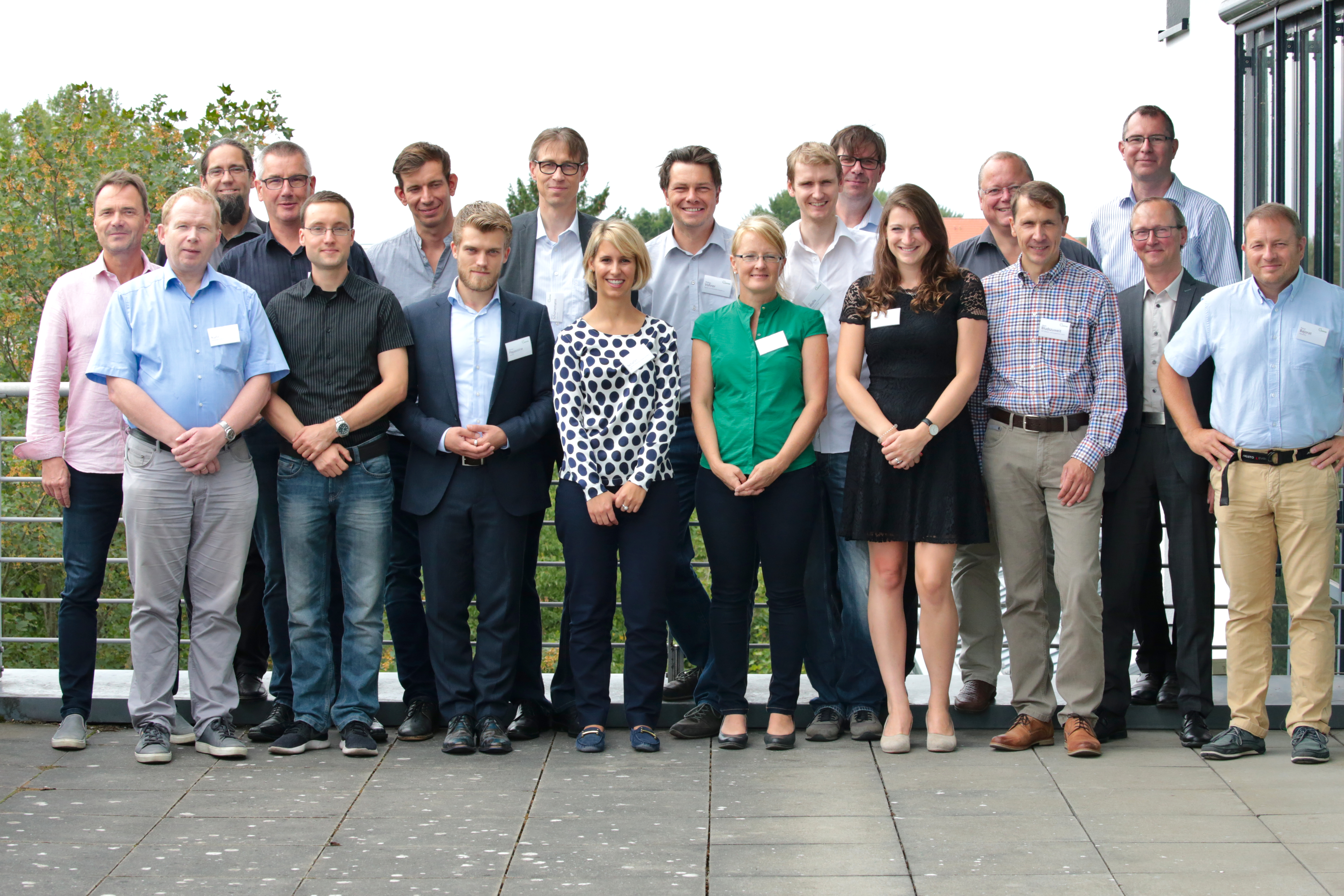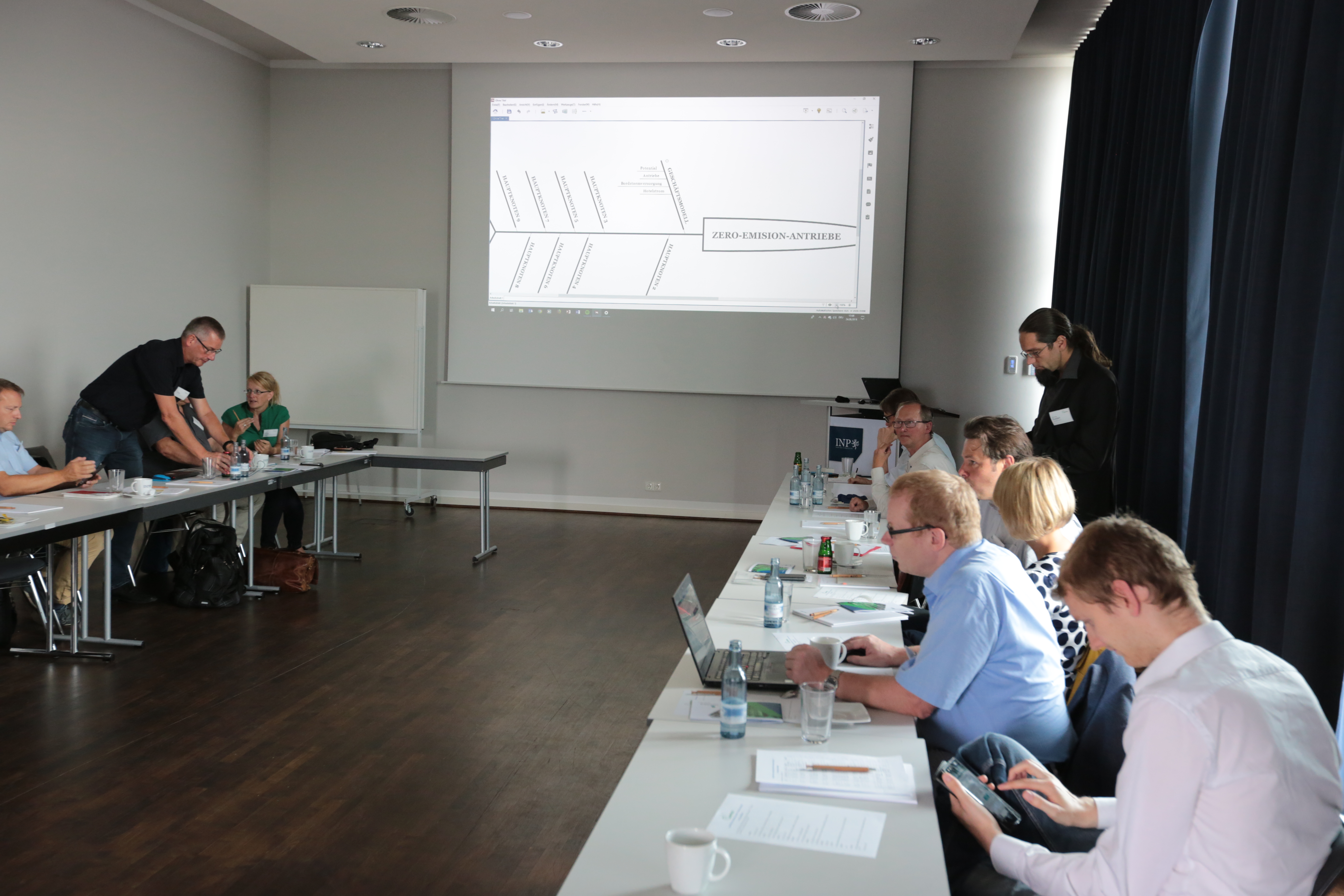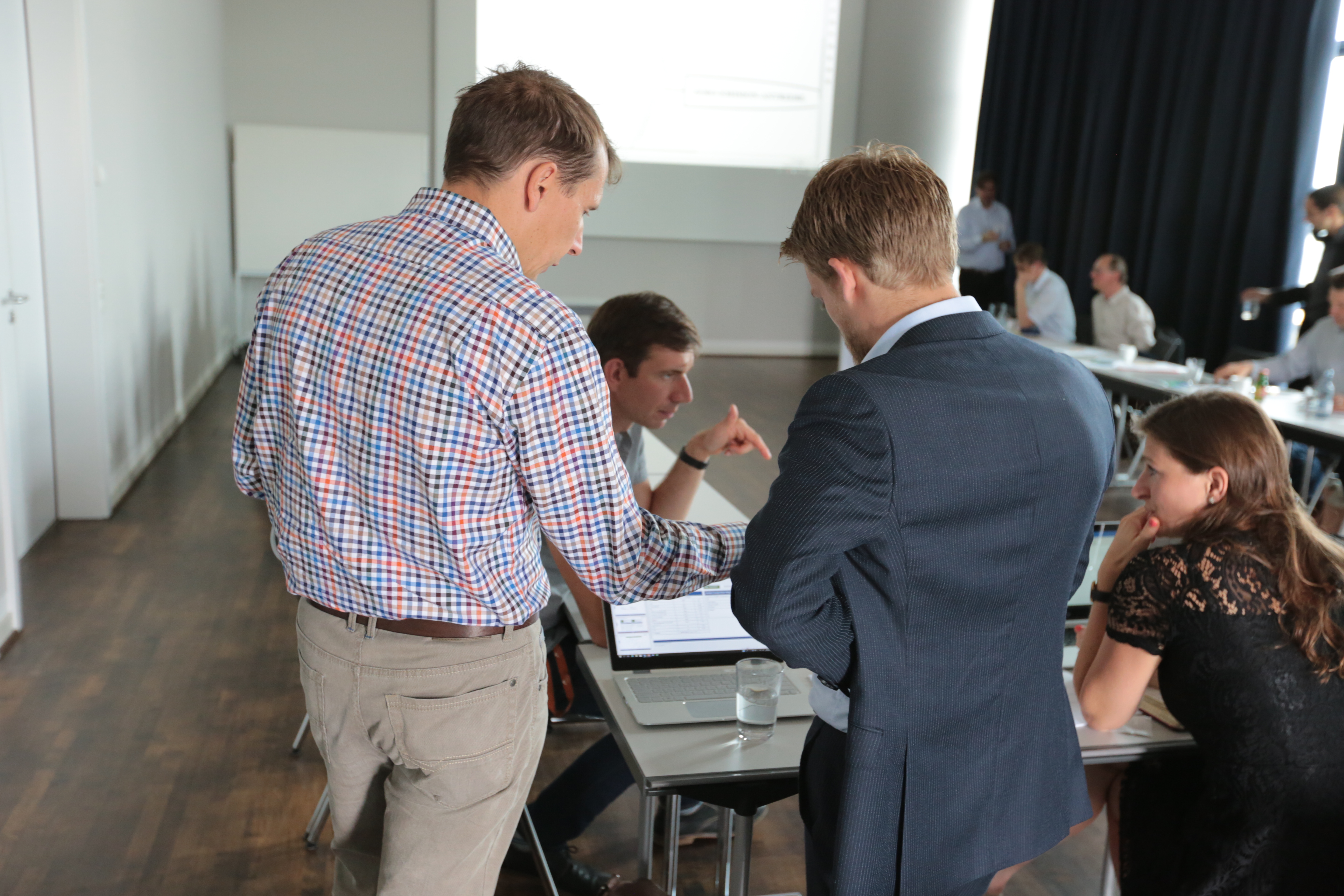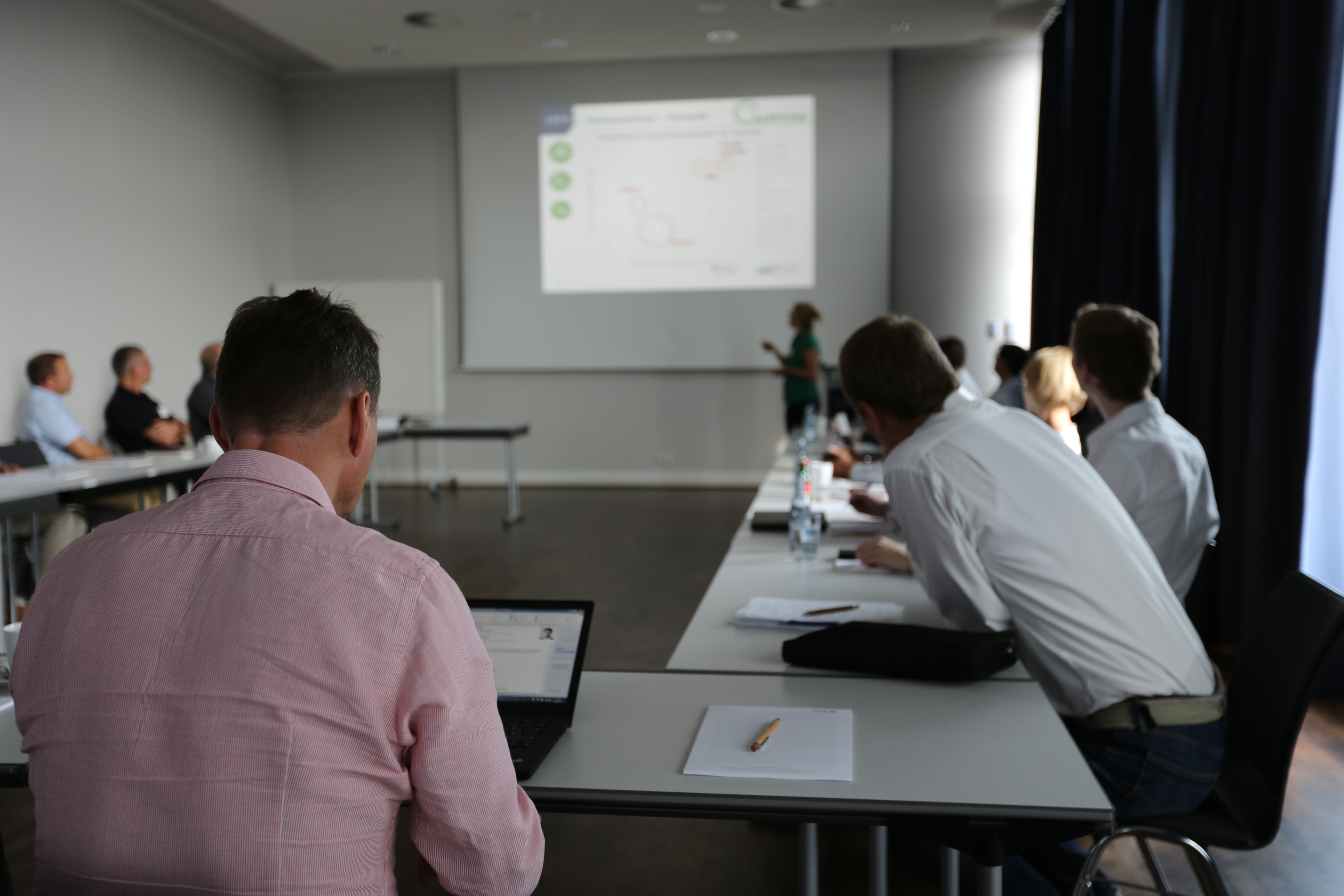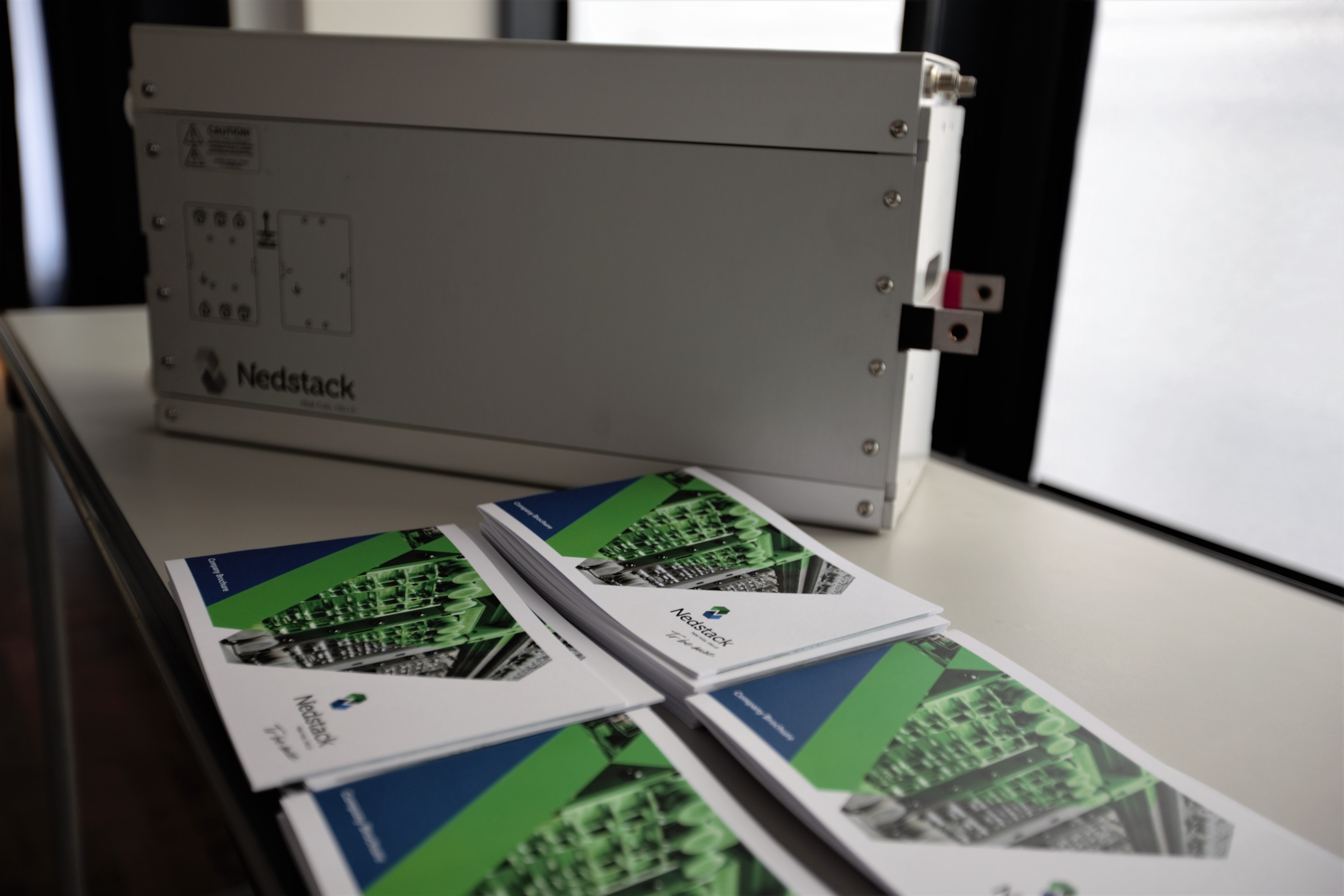On 24 August, partners from the Campfire consortium, including representatives of industry and science, gathered for a second workshop at INP in Greifswald to develop strategies for implementing zero-emission fuels in a broad range of marine propulsion systems. Workshop participants discussed approaches that would utilise ammonia and hydrogen, as well as CO2-neutral fuels such as green methanol and ethanol. The discussion focused particular attention on the importance of safety requirements and ease of use in the marine environment.
The workshop confirmed that our vision to make the Baltic Sea emission free by 2030 is feasible if marine propulsion systems use green fuels that are generated regionally from green electricity, in combination with innovative electroceramic-based energy systems and common technologies that have already been implemented.

